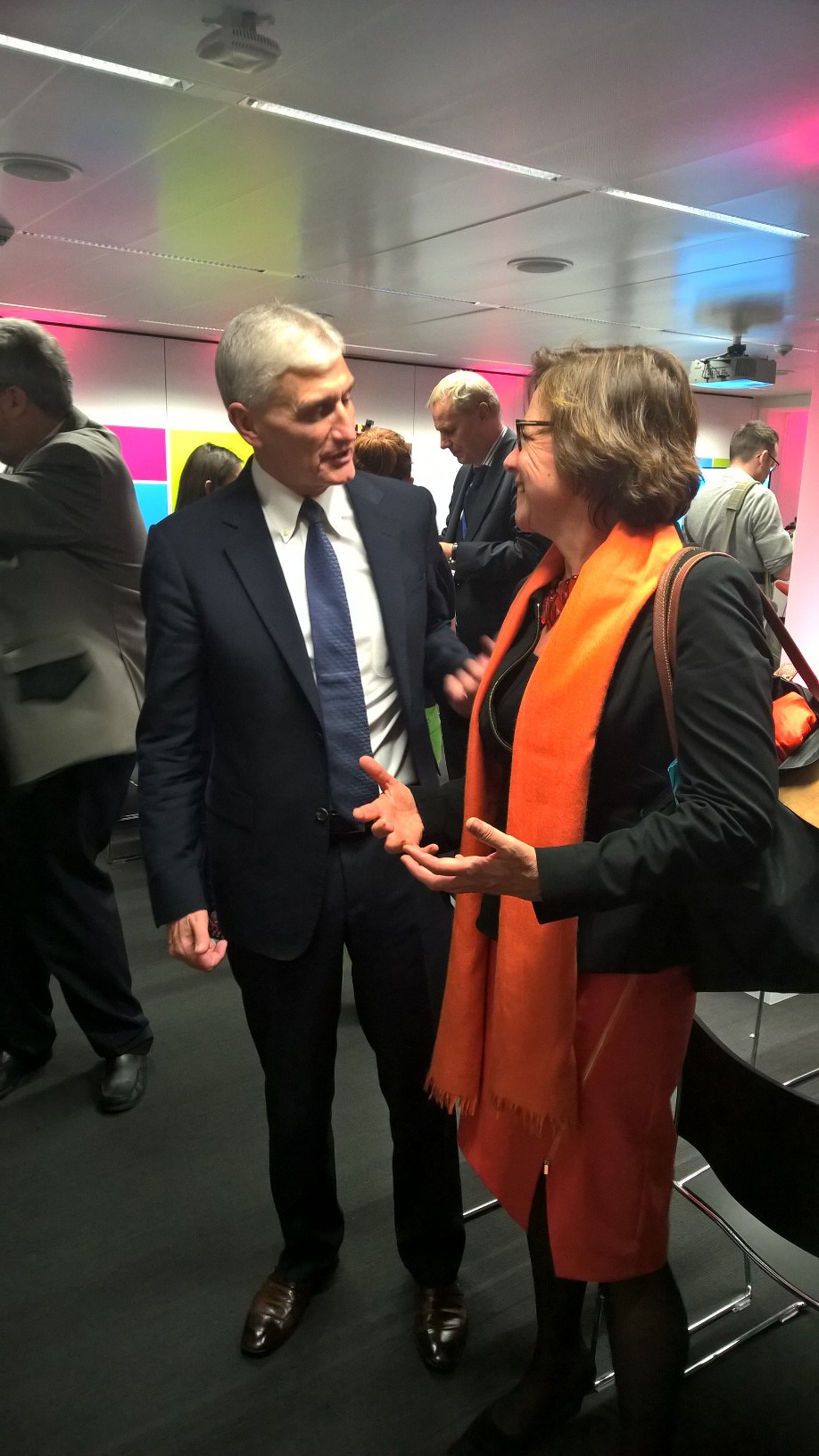By Don Grantham, President, Microsoft Central and Eastern Europe (CEE)
As Europe Code Week continues this week, governments, businesses and NGO’s across Europe are looking at new ways to introduce computer science education and coding skills to more people and boost digital literacy across the region.
With 45% of EU business leaders citing a lack of relevant skills as the biggest barrier to becoming a digital business, it’s clear that we need to take action now to address the short and long-term needs of Europe’s young unemployed. We’ve identified three key steps towards preparing current and future generations for our modern, digital workforce.
Curriculum Overhaul
The jobs on offer 100 years ago are certainly different compared to those available today. Which is why many believe that education systems must change in order to adequately prepare youth for the future workforce. To ensure our students leave school with the right skills, aligned with modern jobs, we need to rethink how we teach them about computing.
With 15 European countries already integrating coding into their national curriculum it’s promising to see that some countries are making successful first steps. The UK, Estonia and Finland are all great examples of where education systems are proactively providing students with the skills required for a more digital savvy environment.
To truly spark a Europe-wide commitment to computer science education though, we need to start early. Research has shown that childrens’ brains absorb information quicker and more easily between the ages of four and ten, which is why it’s the perfect time to introduce kids to a more digital way of thinking. In short, more local governments need to make digital skills the rule, not the exception, across Europe.

Europe’s Educators Hold the Keys to Success
Curriculum is important, but success also depends on teacher training that evolves in tandem. The European Commission has acknowledged the urgent need to arm Europe’s six million teachers with the foundational skills required for teaching coding and computing. Impressively, as a result of the cooperation between the European Coding Initiative and the Secretariat of the Grand Coalition for Digital Jobs, two massive Open Online Courses for educators on how to teach computing in both primary and secondary school have been deployed. As a demonstration of how important coding is to curriculums, already, over 2400 educators from across 30 countries have registered for these courses.
Teacher training is a great start. Our Educator Network provides nearly one million teachers with resources, whilst our IT Academy offers teachers access to core technology skills.
But we can still do more both inside and outside the classroom. In the classroom, technology can be used to change the way kids consume information, helping to spark an interest for ICT and furthering their digital skills. Tools such as Skype in the Classroom and Minecraft are providing teachers with new platforms to help students create, connect and collaborate. In particular, Skype has a unique offering which is enabling students to join teachers, guest speakers and field trips across the globe, bringing the world outside the classroom to pupils’ desks.
Digital Literacy Outside The Classroom
Curriculum reform and teacher training are critical and there is one final piece to this puzzle: business. In order to drive real change for educators and in the national curriculum, the public and private sectors must work together to reform education policy and equip more Europeans with the right digital skills. At Microsoft, we believe it is our responsibility to contribute to the change in ensuring that we’re helping to establish generations of digitally literate individuals.
While reform gets underway, we’re getting a head start through partnering with organizations to inspire young people all over Europe to advance their digital knowledge, fast. For example, CoderDojo, JuniorAchievement and Telecentre Europe are already playing a vital role in addressing the digital skills gap by offering training, extracurricula learning opportunities and certifications. These organisations offer people greater access to skills and resources to explore the digital landscape. But more enterprises need to prioritise digital skills, ramping up internal training as well as external investment.
By increasing collaboration, investment, opportunities and support, we can help to ensure more young people are given the opportunity to learn computer science. That’s why we’ve also committed to channelling $75 million over the next three years into increasing access to computer science education for all youth around the world, especially for those from under-represented backgrounds.
With youth unemployment more than twice the rate of adult unemployment across the continent, it’s clear that a major change needs to take place. To successfully make digital skills mainstream, the public and private sectors need to band together to bridge the gap between the skills taught in the classroom and the skills required by today’s job market. We are committed. Are you?




